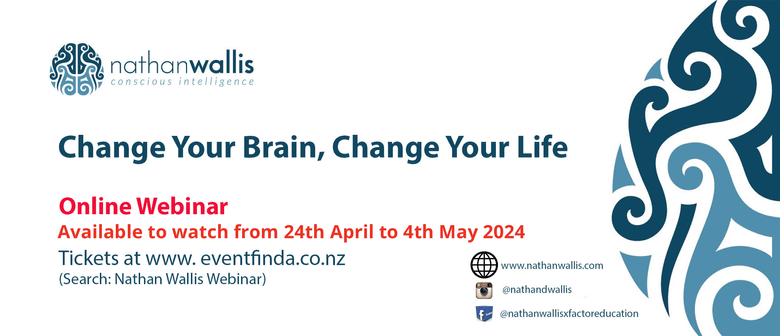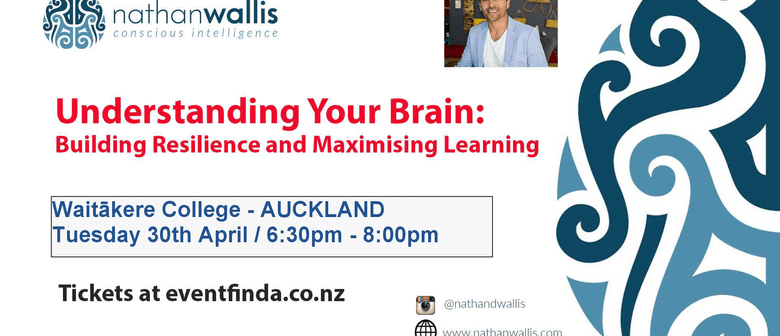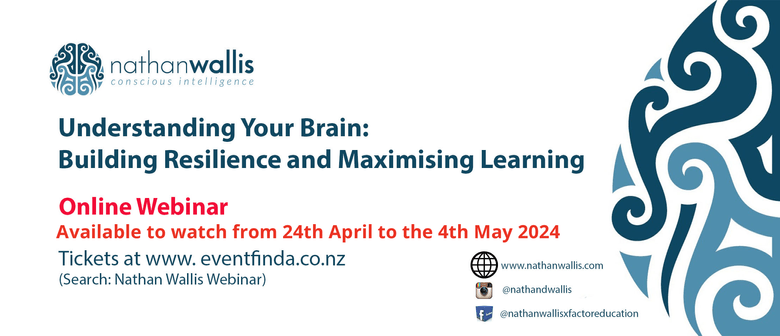Nature, Nurture & Neuroplasticity
27 Nile Street West, Nelson, Nelson / Tasman
Ticket Information
- Additional fees may apply
Restrictions
Website
Listed by
Neuroplasticity is the ability of the brain to reorganise itself, both in terms of its structure and the way it works. Children’s brains are developing and dynamic, and each new experience (both positive and negative) changes their neural architecture. Recent research in the fields of neuroscience and genetics has given us great insight into learning and behaviour and how the brain is shaped by experience. Critical periods of neuroplasticity for various developmental stages are also better understood.
This knowledge has significant implications for how we should approach our work with children and young people. It is time to rethink many of the ways we have responded to the developmental stages from birth and late adolescence, and associated developmental disorders. By understanding and harnessing the latest knowledge surrounding neuroplasticity, we can help children and young people to better manage reactive emotions, think more clearly, learn more easily, and develop greater focus.
In this highly engaging workshop, neuroscientist and science communicator Dr Sarah McKay will translate cutting-edge brain-science research into simple, actionable strategies for facilitating health and wellbeing, creativity, and peak performance for children and young people.
Some of the key topic areas Sarah will discuss include:
- An overview of the latest brain development discoveries from birth to late adolescence, with specific attention paid to how life experiences shape the growing brain and nervous system.
- What is neuroplasticity and why it is so much more than just ‘rewiring the brain’. What are the critical elements that support brain plasticity in our young people?
- What happens to the brain during critical periods of development? How can we can provide appropriate 'grey-matter' infrastructure for children and teens in the classroom, clinic and playground.
- Children differ in their resilience or sensitivity to stressful events. Are resilient children born or made? How can we ensure all children have the opportunity to thrive, despite adversity.
- The 'teen brain' is often dismissed as 'off-line' or 'half-developed', but the opposite is true. There are upsides to owning and operating a teenage brain—adolescents may actually be at their neurobiological peak.
- Hormones and the brain. How the brain controls puberty, how hormones influence the brain and behaviour, and an exploration of neurological myths around the 'hormonal rollercoaster' of adolescence.
- What are the implications of this knowledge for our professional practice with children and adolescents?
Raised in Christchurch, Dr Sarah McKay is now a Sydney-based neuroscientist. She completed her BSc(Hons) at Otago University before completing her Masters and PhD training at Oxford University (she sums up her thesis as ‘Nature, Nurture or Neuroplasticity’). Sarah is the director of The Neuroscience Academy, which offers a professional development program in applied neuroscience and brain health. She has been published extensively for both public and professional audiences and has been quoted in multiple publications, including the Wall Street Journal and The Guardian. She is regular contributor to Australian network television covering a range of neuroscience matters, and is the author of “The Woman’s Brain Book. The Neuroscience of Health, Hormones and Happiness.”
Log in / Sign up
Continuing confirms your acceptance of our terms of service.






Post a comment